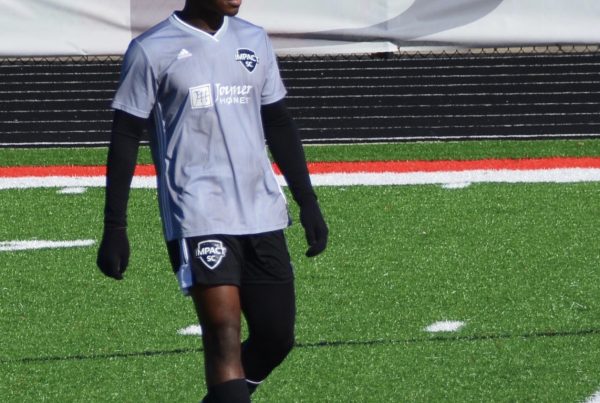As a high school athlete, the dream of playing at the collegiate level may be at the forefront of your mind. To increase your chances of getting recruited, a well-crafted athlete profile is crucial. In this article, we will guide you through the step-by-step process of building a profile that will grab the attention of college coaches.
Understanding the Importance of a College Coach Profile
Before we dive into the nitty-gritty of building a profile, let's first understand why it is important. A college coach profile is a tool that helps coaches evaluate you as an athlete and a student. It provides them with an overall picture of who you are, your accomplishments, and your potential as a part of their team. A strong profile can set you apart from the rest of the applicants and increase your chances of getting recruited.
But what makes a strong profile? It's not just about listing your achievements and stats. A strong profile tells a story about who you are as a person and as an athlete. It showcases your unique strengths and skills that make you an asset to any team. It's important to remember that coaches aren't just looking for the best athletes, but also the best fit for their team culture and values.
Why College Coaches Look at Athlete Profiles
College coaches have a limited amount of time to evaluate potential recruits. They receive hundreds of applications each year and need to quickly narrow down their search. Athlete profiles provide coaches with an easy and efficient way to evaluate athletes without spending too much time scouring through each application.
But what exactly are coaches looking for in a profile? They want to see a clear and concise summary of your athletic and academic achievements. They want to know what sports you play, what positions you excel in, and what your stats are. But they also want to get a sense of your character and work ethic. Coaches want to recruit athletes who are not only talented but also dedicated, disciplined, and coachable.
The Role of a Strong Profile in College Recruitment
A strong athlete profile can make all the difference in the college recruitment process. It can catch the coach's attention and allow you to stand out from the herd. A well-written profile can also give insight into your character, work ethic, and potential as an athlete, which are all crucial factors in a coach's decision-making process.
But it's not just about getting noticed by coaches. A strong profile can also help you narrow down your own college search. By showcasing your strengths and preferences, you can attract coaches from schools that align with your goals and values. This can save you time and effort in the long run by helping you focus on schools that are the best fit for you.
So, if you're serious about playing college sports, take the time to craft a strong athlete profile. It can be the key to unlocking your potential and achieving your dreams.
Gathering Essential Information for Your Profile
The first step in creating your athlete profile is to gather all the essential information. Here are the sections that you should include:
Personal Information and Contact Details
Start with basic personal information, such as your name, address, phone number, email address, and date of birth. Coaches need to know how to contact you and where you're from.
It's important to keep your personal information up-to-date, so coaches can easily get in touch with you. Make sure to include a reliable phone number and email address that you check frequently.
Academic Achievements and Test Scores
Academics are just as important as athletics when it comes to college recruiting. Include your GPA, class rank, and SAT/ACT scores. Coaches want to know that you can handle the academic rigors of college.
It's important to take your academics seriously, as they can greatly impact your future opportunities. Make sure to study hard, attend classes regularly, and seek help when needed. Your academic achievements can also open up scholarship opportunities for you.
Athletic Accomplishments and Statistics
List all your athletic accomplishments, including awards, honors, and accolades. Be specific about your position, height, weight, and other relevant measurements. Also, list your statistics, such as the number of goals scored, tackles made, and assists given.
Coaches want to see your potential as an athlete, so make sure to highlight your strengths and achievements. You can also include any challenges you have overcome, such as injuries or setbacks, and how you have grown from them.
Extracurricular Activities and Leadership Roles
Include any extracurricular activities you participate in, such as clubs, volunteer work, or community service. Coaches want to know that you're well-rounded and have interests outside of athletics. Also, mention any leadership positions you have held and the skills you developed through these roles.
Participating in extracurricular activities can show coaches that you are committed, responsible, and have a strong work ethic. It can also help you develop important skills, such as teamwork, communication, and time management.
Remember, your athlete profile is a representation of who you are as a person and an athlete. Make sure to take the time to gather all the essential information and present it in a clear and organized manner. This will increase your chances of getting noticed by coaches and achieving your athletic goals.
Creating a Compelling Athletic Resume
Now that you have gathered all the essential information, it's time to create a compelling athletic resume. Here are some tips:
Highlighting Your Strengths and Skills
Your profile should highlight your strengths and skills as an athlete. Include your primary position, and list each of the skills you excel at that are relevant to your sport. It's essential to showcase your unique talents and attributes that make you stand out from other athletes.
For example, if you're a basketball player, you might want to highlight your ability to shoot from long range, your ball-handling skills, or your defensive prowess. If you're a soccer player, you might want to emphasize your speed, your ability to read the game, or your passing accuracy.
Remember, coaches are looking for athletes who can help their team win. By highlighting your strengths and skills, you're showing them that you have what it takes to make a positive impact.
Showcasing Your Athletic Achievements
Your athletic resume should showcase your past achievements. List all the awards and accolades you have received and the events where you were a standout player. Be specific about your role in the team's success and your contributions to any victories.
For example, if you were the leading scorer on your high school basketball team, make sure to mention that. If you were named the MVP of a tournament or league, be sure to include that as well. Coaches want to see that you have a track record of success and that you're capable of performing at a high level.
It's also a good idea to include any records you've set or broken. For instance, if you hold the school record for most goals scored in a season, make sure to mention that. These types of achievements demonstrate your ability to excel and can make you a more attractive recruit.
Including Relevant Training and Camp Experience
If you have attended any relevant training or camps, make sure to include them in your profile. Coaches want to know that you are committed to improving your skills and working hard to achieve your goals.
For example, if you attended a basketball camp run by a college coach, be sure to mention that. If you've worked with a personal trainer to improve your speed or agility, include that as well. These experiences show that you're willing to put in the work to become a better athlete.
Additionally, if you've participated in any clinics or workshops that are relevant to your sport, make sure to mention those as well. These types of experiences demonstrate your dedication to your craft and can make you a more attractive recruit.
By following these tips, you can create a compelling athletic resume that showcases your skills, achievements, and commitment to your sport. Remember, coaches are looking for athletes who can help their team win, so make sure to highlight what makes you stand out from the crowd.
Crafting a Persuasive Personal Statement
A personal statement provides the opportunity to showcase your character and your passion for your sport. It is a chance to tell your unique story and demonstrate your personal growth and development. Here are some tips for crafting a persuasive personal statement:
Telling Your Unique Story
Your personal statement should tell a unique story about who you are and what drives you. This is your chance to showcase your individuality and let your personality shine through. Be authentic and honest about your journey as an athlete and how you have grown over the years. Coaches want to know that you're a dedicated, hard-working student-athlete who is committed to your goals.
For example, you could talk about how you first discovered your love for your sport. Maybe you grew up watching your favorite team and dreamed of one day playing at their level. Or perhaps you stumbled upon your sport by chance and fell in love with it after your first game. Whatever your story may be, make sure to share it in a way that is both engaging and informative.
Demonstrating Your Passion for the Sport
Showcasing your passion for your sport can set you apart from the rest of the applicants. Explain what drew you to your sport and why you are so passionate about it. Coaches want to know that you're willing to put in the work and make sacrifices to achieve your dreams.
For instance, you could talk about how your sport has helped you grow as a person. Maybe it has taught you the value of teamwork and leadership, or maybe it has helped you develop a strong work ethic and a never-give-up attitude. Whatever it may be, make sure to highlight how your passion for your sport has impacted your life in a positive way.
Showcasing Your Personal Growth and Development
Finally, your personal statement should showcase your personal growth and development as an athlete and a person. Explain how your experiences have shaped you and how you have overcome challenges along the way. Coaches want to know that you're someone who can persevere through adversity and grow as a team player.
For example, you could talk about a time when you faced a difficult obstacle, such as a major injury or a losing streak. Explain how you overcame this obstacle and what you learned from the experience. Maybe it taught you the importance of resilience and perseverance, or maybe it helped you develop a stronger mental game. Whatever it may be, make sure to highlight how you have grown as a person and an athlete.
In conclusion, crafting a persuasive personal statement requires you to be authentic, passionate, and reflective. By telling your unique story, demonstrating your passion for your sport, and showcasing your personal growth and development, you can create a compelling narrative that will help you stand out from the crowd.
Conclusion
Building a profile for college coaches can seem daunting, but by following these steps, you can create a profile that highlights your accomplishments and potential as an athlete. Remember to be authentic and showcase your strengths and unique attributes. With a strong profile, you will increase your chances of getting recruited and playing at the collegiate level.






